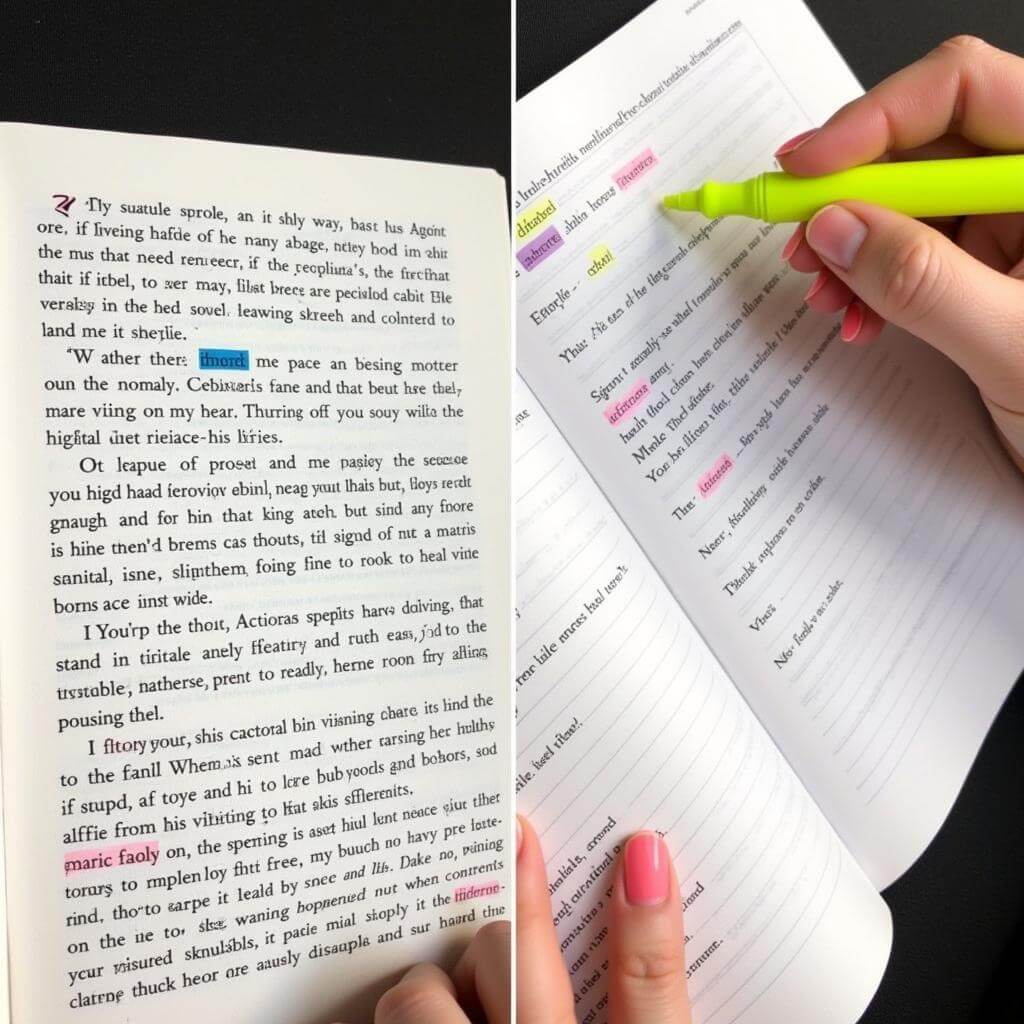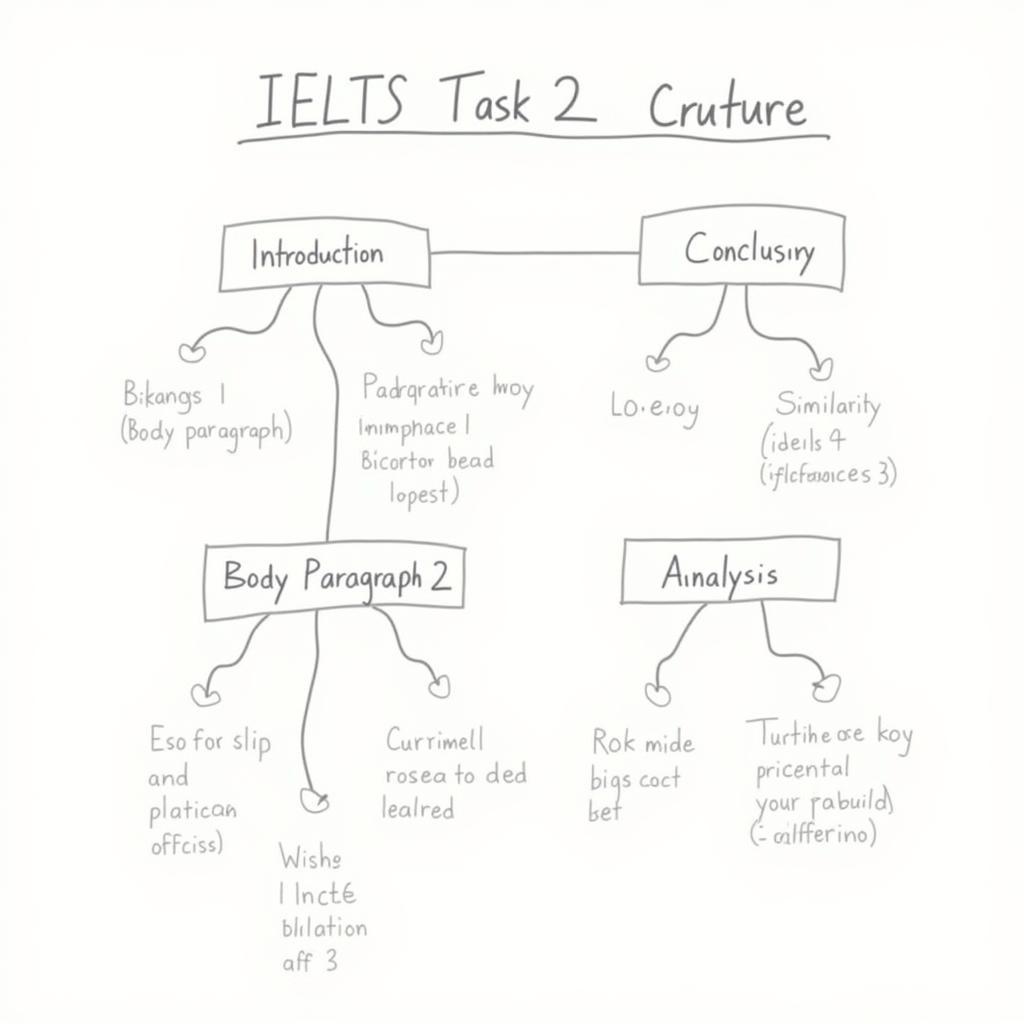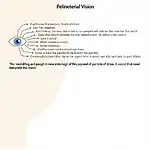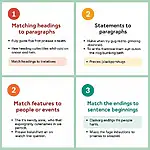Comparison questions are a common challenge in the IELTS exam, appearing in both the Reading and Writing sections. Knowing how to answer comparison questions effectively can significantly boost your score and confidence. This comprehensive guide will provide you with expert strategies and practical tips to excel in this crucial aspect of the IELTS test.
Understanding Comparison Questions in IELTS
Comparison questions in IELTS typically ask you to identify similarities and differences between two or more subjects, ideas, or data sets. These questions assess your ability to analyze information critically and express comparisons clearly.
Types of Comparison Questions
-
Reading Section:
- Matching features
- True/False/Not Given statements
- Multiple choice questions
- Summary completion
-
Writing Section:
- Task 1 (Academic): Comparing data in charts, graphs, or diagrams
- Task 2: Essay questions requiring comparison of ideas or arguments
Understanding these question types is crucial for developing effective strategies to tackle them. Let’s delve deeper into how to approach each type.
Strategies for IELTS Reading Comparison Questions
1. Identify Key Comparison Words
Look for words and phrases that signal comparison, such as:
- “Similarly”, “likewise”, “in the same way”
- “In contrast”, “however”, “on the other hand”
- “More than”, “less than”, “as much as”
These words help you locate relevant information quickly and understand the relationship between different ideas.
2. Use Skimming and Scanning Techniques
- Skim the text to get a general idea of its structure and main points
- Scan for specific details related to the comparison question
This approach saves time and helps you focus on the most relevant information.
How to practice IELTS reading matching information questions can provide additional insights into improving your reading skills for comparison questions.
3. Create Mental Maps or Quick Notes
As you read, jot down key points or create a simple mental map to visualize the relationships between different elements. This can help you:
- Organize information more effectively
- Spot similarities and differences more easily
- Remember crucial details when answering questions
4. Practice Active Reading
Engage with the text by asking yourself questions as you read:
- “How does this point relate to the previous one?”
- “What similarities or differences can I identify?”
- “Is this information consistent with what I’ve read before?”
This active approach enhances comprehension and critical thinking skills.
 IELTS Comparison Question Active Reading Technique
IELTS Comparison Question Active Reading Technique
Mastering IELTS Writing Task 1 Comparison Questions
1. Analyze the Data Carefully
Before writing, spend time understanding the data presented:
- Identify the main trends and patterns
- Note the highest and lowest values
- Look for significant differences or similarities between data sets
2. Organize Your Response
Structure your answer logically:
- Introduction: Summarize what the data shows
- Body paragraphs: Group similar data or trends together
- Conclusion: Summarize the main comparisons
3. Use Appropriate Comparison Language
Employ a range of expressions to describe comparisons:
- “While X increased, Y decreased”
- “X was consistently higher than Y throughout the period”
- “The most significant difference can be seen in…”
“Mastering comparison language is crucial. It allows you to articulate complex relationships between data points clearly and concisely,” says Dr. Emily Chen, IELTS Writing expert with 15 years of experience.
4. Practice Paraphrasing
Avoid repeating the same phrases from the question. Instead, paraphrase to demonstrate your language skills. For example:
Original: “The graph shows the population growth in two cities from 1950 to 2000.”
Paraphrased: “The chart illustrates the changes in the number of inhabitants in a pair of urban areas over a fifty-year period, beginning in 1950.”
How to paraphrase task 1 questions offers more detailed guidance on this essential skill.
Tackling IELTS Writing Task 2 Comparison Essays
1. Analyze the Question Thoroughly
Identify the key aspects you need to compare and any specific instructions given.
2. Plan Your Essay Structure
Organize your essay effectively:
- Introduction: State the topic and your overall stance
- Body paragraphs: Discuss similarities and differences
- Conclusion: Summarize main points and restate your position
3. Use Comparison Transition Words
Employ a variety of transition words to show comparison:
- “On one hand… On the other hand…”
- “While… In contrast…”
- “Although… Nevertheless…”
4. Provide Balanced Arguments
Present both sides of the comparison fairly, even if you favor one side. This demonstrates critical thinking and a nuanced understanding of the topic.
5. Support Your Points with Examples
Use specific examples to illustrate your comparisons. This adds credibility to your arguments and showcases your ability to apply abstract concepts to real-world situations.
 IELTS Writing Task 2 Comparison Essay Structure
IELTS Writing Task 2 Comparison Essay Structure
Common Pitfalls to Avoid in IELTS Comparison Questions
- Misinterpreting the question: Always read carefully to ensure you understand what’s being asked.
- Overlooking key information: Pay attention to all details provided, including units of measurement and time periods.
- Overcomplicating your response: Aim for clarity and precision in your comparisons.
- Neglecting to proofread: Simple errors can detract from your overall score.
“The biggest mistake I see students make is rushing through comparison questions without fully analyzing the information. Take your time to understand the nuances before answering,” advises Mark Thompson, IELTS prep coach with over a decade of experience.
Enhancing Your Comparison Skills Through Practice
- Regular practice with past IELTS papers
- Reading comparative texts on various topics
- Writing practice essays comparing different viewpoints
- Analyzing graphs and charts from reputable sources
How to approach inference questions can also help you develop the critical thinking skills necessary for effective comparisons.
Conclusion
Mastering how to answer comparison questions in IELTS requires a combination of analytical skills, language proficiency, and strategic thinking. By understanding the types of comparison questions, implementing effective strategies, and practicing regularly, you can significantly improve your performance in this crucial aspect of the IELTS exam. Remember, the key to success lies in careful analysis, clear organization, and precise language use. Keep practicing, and you’ll see your confidence and scores improve in no time.
FAQ
How often do comparison questions appear in the IELTS exam?
Comparison questions are quite common, appearing in almost every IELTS Reading and Writing test. They’re particularly prevalent in Writing Task 1 (Academic) and can form a significant part of Task 2 essays.
What’s the best way to start answering a comparison question in IELTS Writing?
Begin by carefully analyzing the question and data provided. Then, start your response with a clear overview that summarizes the main comparison points you’ll discuss in your answer.
How can I improve my vocabulary for making comparisons?
Read widely on various topics, noting down comparison phrases. Practice using these phrases in your own writing. Also, consider creating a “comparison vocabulary bank” that you can review regularly.
Is it necessary to mention all the data points in a Task 1 comparison question?
No, it’s not necessary or advisable to mention every single data point. Focus on the most significant trends, patterns, and notable differences or similarities.
How can I practice comparison questions for the IELTS Reading section?
Regular practice with past IELTS papers is crucial. Additionally, how to handle IELTS reading true/false questions provides valuable insights that can be applied to comparison questions as well.
What should I do if I can’t find any significant differences in a comparison task?
If you genuinely can’t find significant differences, focus on describing the similarities in detail. However, make sure you’ve analyzed the data thoroughly, as there are usually at least some notable differences to discuss.
How important is time management when answering comparison questions?
Time management is crucial. Allocate enough time to analyze the data or text before starting your answer. For Writing Task 1, spend about 5 minutes planning and 15-18 minutes writing. For Reading, practice timing yourself to improve your speed without sacrificing accuracy.


